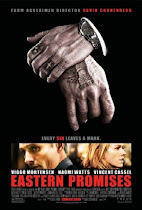Thursday, June 12, 2008
Uncertainty scares people. The moment there is a doubt, it leads to paranoia. Paranoia breeds panic amongst an individual which in turn then spreads to the entire society.
The financial markets are a prime example. If one large player for whatever reason starts selling heavily then everyone seeing this develops a fear that something is wrong and follows suit and starts selling even though there maybe no real justification for this selling on their part. It is this human mentality that has been cultivated and developed over the ages by society.
Society creates so many unnecessary linkages that they are capable of influencing and subverting a rational flow of thought and logic that would have otherwise existed in the absence of societal pressures, codes, signals and rules. It results in the creation of uncertainty which breeds fear and whenever there is fear there then emerges an order or a setup that aims to remove this fear and thus results in a king, or a dictator, or an oligarchy or a democracy or some other form of institutional leadership.
This leadership although aims to remove the cause of fear – uncertainty – so as to restore the confidence of people in life and to make them comfortable eventually gets corrupted by the beauty of its power and the luxuries that come attached with it. This makes them blind to the needs of the people and eventually instills in a desire to retain this power at all costs.
George Orwell’s brilliant political satire Animal Farm which also happens to be witty and poignant makes the message of “Power Corrupts” brilliantly clear with this famous line – “All animals are born equal, though some are more equal than the others.”
Thus to combat the fear of uncertainty a higher governing order was set up to take care of the people but which lost its path in the need to retain power. However once the institution was put into place it wasn’t possible to remove it. Though various attempts were made to remove it and a school of thought evolved as a result of it, that being Anarchy.
Anarchy states that or may refer to :
· "Absence of government; a state of lawlessness due to the absence or inefficiency of the supreme power; political disorder."
· "A theoretical social state in which there is no governing person or body of persons, but each individual has absolute liberty (without the implication of disorder)."
As it is pretty obvious this school of thought was considered socially radical and outlawed by the political institutions in place as it was a direct threat to their power and was thus banned.
 The popular grunge band Nirvana fronted by the ‘late’ Kurt Cobain were also at the forefront in promoting anarchy and their song “Smells Like Teen Spirit” was a seditious twist on the “mass mentality of conformity” amongst the people and in the music industry around them. The music video was also shot with the aim to send out the same message.
The popular grunge band Nirvana fronted by the ‘late’ Kurt Cobain were also at the forefront in promoting anarchy and their song “Smells Like Teen Spirit” was a seditious twist on the “mass mentality of conformity” amongst the people and in the music industry around them. The music video was also shot with the aim to send out the same message.
Another notable punk band was called “The Sex Pistols” who had amongst many rebelliously themed songs a song titled “Anarchy in the U.K”
However the anarchist movement doesn’t really have any momentum or force and no practical examples as such exist either.
Going back to the topic, with the “more equal animals” failing to do the job for which they were given power, society responded by aiming to kill the source of fear – uncertainty.
Society now has so evolved that it conditioned people to look for answers in the form of Yes or No, Right or Wrong, Here or There, Heaven or Hell, Black or White etc. The middle path was totally eliminated and every one adhering to it was ostracized.
One of the most powerful symbols of balance and order according to Chinese philosophy - the Yin-Yang
 is also dualistic in nature. It also propounds the theory that there are two and only two equal and opposite forces in the world that balance it.
is also dualistic in nature. It also propounds the theory that there are two and only two equal and opposite forces in the world that balance it.
Being dualistic is NOT a bad thing however it kills creativity by reducing the number of avenues in which the human mind can wander and also prevents testing the depths of the human mind in known and unknown directions.
Consequently the colour grey now attracts criticism and mockery and is indicative of a rebellious spirit and soul. I mean this symbolically of course.
Thus to survive in society it isn’t a good idea to adopt any shade of grey unless you are willing to break (or at least not be completely dependent on) societal ties (ties by birth, family etc), willing to step outside the boundaries of what society allows you to do, willing to not let what others think of you influence your decisions and your desires in life, willing to fight against retrograde societal norms.
 In the same vein, the legendary Sidney Lumet’s critically acclaimed masterpiece 12 Angry Men also dealt with the subject of doubt and uncertainty. The opening scene of the movie starts with the judge directing the jury to deliberate and return a verdict. The case is that of a murder and the sentence demanded by the prosecution is that of death. On the face of it the evidence overwhelmingly points towards a guilty verdict.
In the same vein, the legendary Sidney Lumet’s critically acclaimed masterpiece 12 Angry Men also dealt with the subject of doubt and uncertainty. The opening scene of the movie starts with the judge directing the jury to deliberate and return a verdict. The case is that of a murder and the sentence demanded by the prosecution is that of death. On the face of it the evidence overwhelmingly points towards a guilty verdict.
However one of the jurors says that the evidence is not completely conclusive and it would be only fair to clear this doubt but to this suggestion he is met with stiff resistance and even anger (hence the title) from the remaining 11 jurors who want to give the verdict even before an hour’s worth of deliberations are complete. They feel that the prosecutions argument was strong enough
However when the greyer shades and nuances of the case are examined inconsistencies show up which actually changes the circumstances in which the case is viewed. This is one story that is brilliantly told with no melodrama and no wasted film reel.
This movie also highlights the fact that any facts when presented in a convincing manner are accepted by the common person as the gospel truth. He doesn’t digest it or reflect on it or think about it for that would mean questioning it and falling into the realm of doubt and uncertainty – an area where he is socially conditioned not to go to.
There are numerous examples and stories which deal with this subject, for that matter the very fact that in the medieval period sailing too far from the known world wasn’t undertaken because of the mistaken knowledge that they would fall of the edges of the flat world shows what fear of the unknown does to man and how it limits his potential of knowing more.
All that is advocated is looking in those places of human thought which are overlooked and where looking is not socially recommended, this might result in stepping on a few toes but at least something new would be learned in the process.
This is a topic where many may disagree with whatever is said either by me or anyone else but disagreement and even for that matter criticism is good, for it would merely lead to more thought and introspection and hopefully to a better understanding of the human psyche.
Also published in The Pundit.
19th May,2008.
Labels: Anarchy, Philosophy, Society




